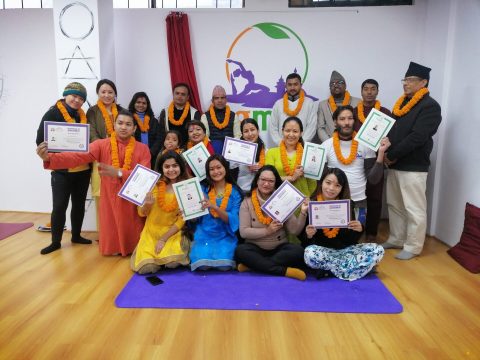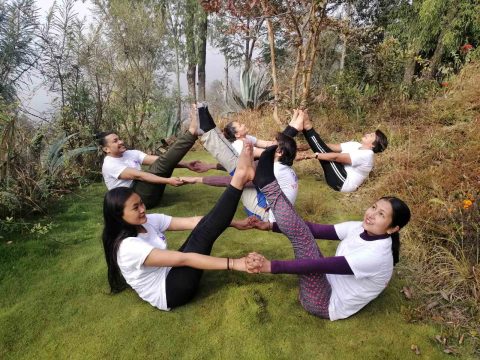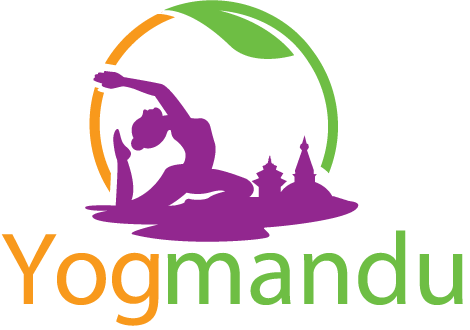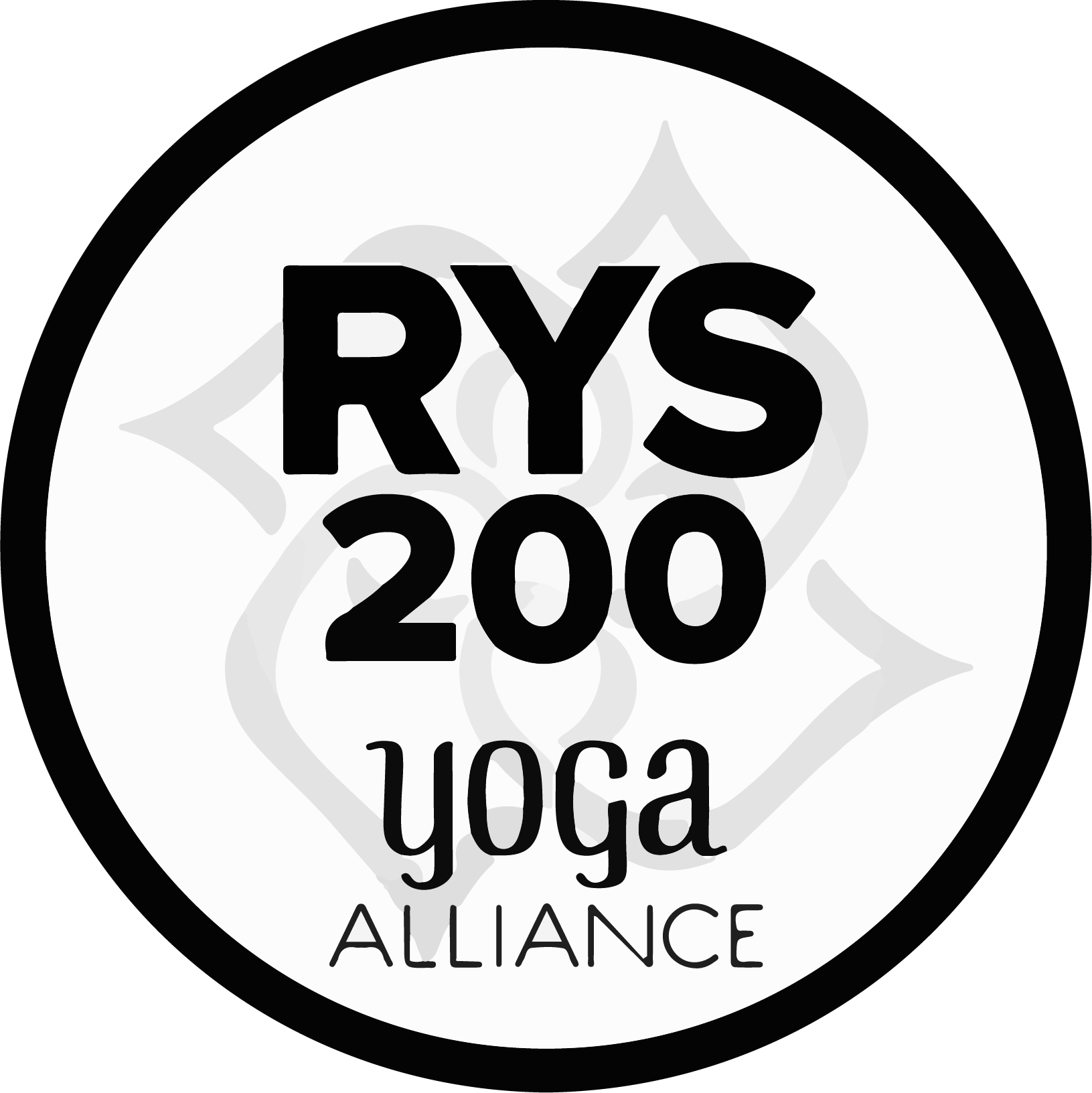Besides the 200 hours Residential Yoga Teacher’s Training, Yogmandu also offers the same in the form of a non-residential course. The 200 hours Yoga Teacher Training non-residential course best suits beginners and intermediate practitioners who want to become professional yoga instructors but don’t have the time to take the residential course.
One can register with the Yoga Alliance as a Registered Yoga Teacher (RYT) 200 upon the completion of our course.


Course Overview
| Course Fee | NPR 40,000 For Nepalese Citizen USD 550 For Foreign Citizen |
| Duration | 28 Days |
| Timings | Morning and Afternoon |
| Level | Beginner to Intermediate |
| Yoga Style | Sanatan and Hatha Yoga |
| Module | Non-Residential: Contact Hours: 100-110 hours (Physical/Online) Non-Contact Hours: 90 - 100 hours |
| Language of Instruction | Mixed (English / Nepali) |
| Certification | YTT 200 Yoga Alliance US Certification |
| Venue | Yogmandu Yoga |
Eligibility Criteria
The eligibility criteria are the same as that of the 200-hour Residential course!
- Prior experience is good but not compulsory.
- Proficiency in verbal and written communication.
- 18 years old or more.
Please Note: If for any reason, a participant is found unfit to complete the course, Yogmandu keeps the right to discontinue his/her course without any refund. In some unavoidable situations, we may allow participants to complete the course in the near future with no additional charges.
Yoga Certification
Upon the completion of our 200-hour non-residential yoga teacher’s training course, participants will receive the internationally recognized Yoga Alliance YTT 200 certification following proper evaluation.
Course Content
- Techniques, Training, and Practice
- Prayer and Mantra Chanting
- Sukshma Vyayama (Stretching), Warm-ups, and Sun Salutation
- Asanas
- Bandha and Pranayama
- Shatkarma and Mudras
- Yoga Nidra and Meditation
- Body Alignment
- Yoga Safety Guidelines
- Teaching Methodology
- Group Dynamics
- Time Management
- Principles of Demonstration
- Verbal Cueing
- Observation
- Correcting
- Qualities of a Good Teacher
- Anatomy and Physiology
- Constituents of a human body
- Bones, Joints, Muscles
- Human Body Systems
- Spiritual Anatomy
- Pancha Kosha
- Chakras
- Nadis
- Kundalini
- Yoga Philosophy, Lifestyle, and Ethics
- Meaning and History of Yoga
- Patanjali Yoga Sutras
- Forms of yoga
- Karma Yoga
- Bhakti Yoga
- Mantra Yoga
- Jnana Yoga
Evaluation
We’ll evaluate the yoga teacher training participants based on the following assessments:
- Class participation
- Lesson planning
- Conducting a workshop
- Mantra Chanting
- Observations of the teacher
- Communication during the class
- Practicum
Included
- Tea / Coffee
- Yoga textbook and notebook
- Yoga Alliance Certificate
- 13% VAT and 10% Service Charge
Graduation Ceremony
- Certificate Distribution
- 108 Sun Salutations (optional)
- Special Fire Ceremony (optional)
Follow our Facebook page, Yoga Teacher’s Training Nepal for regular updates.



